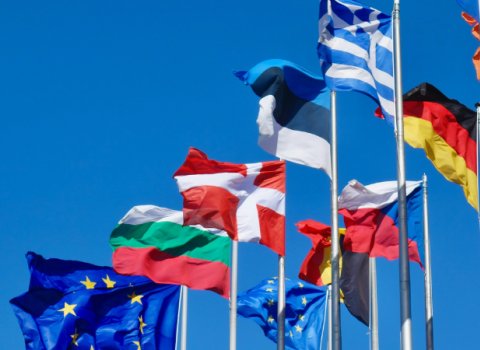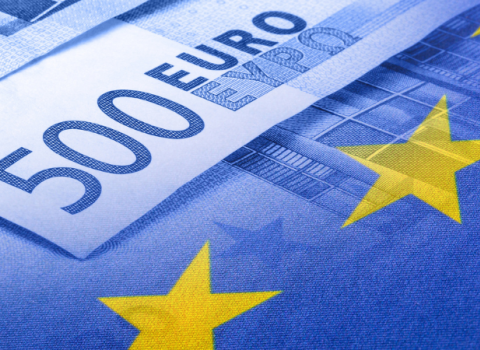Europe has spent billions supporting the growth of renewable energies but wind and solar power will go to waste if governments fail to invest in smart electricity grids that can gather and process information on energy usage. An overhaul of the EU grid system is critical to driving gains in energy efficiently and increasing the share of renewable energies such as wind and solar in the energy mix.
“The smarter the energy system is, the better it can serve Europe’s prosperity, its citizens and customers,” said Ari Koponen, Vice President, at Finnish energy company Fortum, speaking at a conference hosted by industry group EURELECTRIC in Brussels on 28 November. “Smart grids are enabling the trading of new energy commodities and the connection of new forms of production.”
Europe needs to invest €60 billion over the next six years modernising its electricity grid system if it is to reach its ambitious energy objectives, the European Commission estimates. The technology overhaul will enable grid operators to automatically gather and process information on energy usage which is vital to balancing flows of power from an increasingly diverse mix of energies, including intermittent sources such as wind and solar.
Smart grids have a lifetime of up to 50 years, meaning that stable, long-term policy frameworks are needed to spur investments by utilities, which are likely to pass a large chunk of the costs onto customers. Energy management services will need to improve in order to justify this spending, and distribution system operators (DSOs), the independent bodies responsible for overseeing energy distribution, will play a crucial role in this, said delegates.
Smarter energy for Europe
The “real time” information provided by smart grids allows operators to better anticipate energy demand and to plan the integration of new, cleaner sources into the market. The result should be a reduction in greenhouse gas emissions and, when combined with the widespread introduction of smart meters in homes, the ability for consumers to monitor their consumption.
This technology is set to play a major role in achieving the EU’s energy targets for 2020: a 20 per cent reduction in greenhouse gas emissions; a 20 per cent increase in the share of energy consumption from renewable resources; and a 20 per cent improvement in energy efficiency.
“The implementation of these ambitious policy objectives will be a costly exercise,” said Koponen. “Heavy investments from industry are needed.” Funds for building up this system have to come from customers, but the tariffs must be fair and reflect actual costs. “There should not be any subsidisation or free-riding,” he said.
Cross-sector collaboration
Sophisticated Information and communications technologies being deployed under smart city initiatives may help governments avoid reinventing the wheel and save costs, said Colette Maloney, Head of Unit, Smart Cities and Sustainability, DG Connect, thus avoiding the duplication of costly infrastructures.
“Why do we need to deploy two sets of networks, particularly fibre networks or wireless infrastructure, in parallel?” she asked. “There’s certainly scope for utilities that own fibre in the ground to be able to offer broadband services, and there’s scope for telecom companies with fibre or mobile networks where utilities don’t have them to be able to offer services to support utilities in smartening up the electricity grid."
Over the past year, the Commission has sought to foster debate between the two sectors, but utility companies are wary of the long-term stability of ICT and of a loss of control. Maloney insisted these obstacles are surmountable. “Telecoms are used in many other critical operations, and so far we haven’t heard major complaints. Eventually it works,” she said.
DSOs as facilitators
It is not just the smart grid technology that will make a difference to the European energy sector, but also the expertise of DSOs, said Peter Birkner, executive member of the board of German energy provider Mainova AG. They will be the “main investor and driver” of the change, he said.
In order for the market share of renewables to increase, DSOs will need to integrate them into the system, Birkner said. To keep grid fees to be as low as possible, DSO expertise is needed to guarantee efficient grid design and operation. “DSOs will play a key role as neutral facilitators of tomorrow’s more decentralised energy system,” he said, as they assume a central role in managing infrastructure, storing and providing metering data, and facilitating switches in suppliers.
To capitalise on this neutrality, Europe needs to support DSOs and provide a “target-orientated regulatory framework,” Birkner argued.
One example of a failing policy is an existing German regulation which says DSOs get more money as the power in their grid increases, a so-called extension factor. But the entire premise of smart grids is that they reduce the power in the grid in order to better control it.
“In Europe, we don’t have a technology problem, we know what to do and we have the means,” said Birkner. “What we need is a consistent framework to make the technology happen. And then DSOs can contribute in an effective way to the 2020 targets and the realisation of the internal market.”




 A unique international forum for public research organisations and companies to connect their external engagement with strategic interests around their R&D system.
A unique international forum for public research organisations and companies to connect their external engagement with strategic interests around their R&D system.